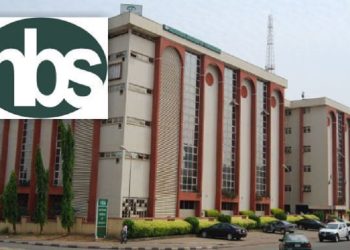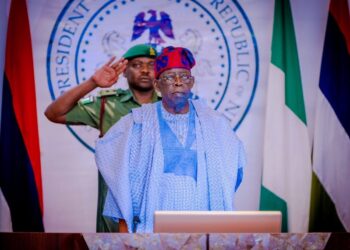The International Monetary Fund (IMF) has forecast that Nigeria’s inflation rate will rise sharply to 37% in 2026, despite a temporary decline expected in 2025. This projection was outlined in the IMF’s latest World Economic Outlook report released in April 2025.
According to the Fund, Nigeria’s average inflation is projected to ease to 26.5% in 2025, down from the 33.2% recorded in 2024, following the rebasing of the Consumer Price Index (CPI) by the National Bureau of Statistics (NBS). However, the IMF warned that inflationary pressures would likely resurge by 2026, highlighting the challenges of achieving lasting price stability.
External Balances Under Pressure
The report also shed light on Nigeria’s external sector outlook, predicting a narrowing of the country’s current account surplus. After posting a surplus of 9.1% of GDP in 2024, the surplus is expected to shrink to 6.9% in 2025 and further to 5.2% in 2026.
This projection comes despite Nigeria recording a $6.83 billion balance of payments surplus last year, driven largely by a goods trade surplus of $13.17 billion. Analysts, however, have cautioned that sustained low oil prices could reverse these gains. JP Morgan has raised concerns that oil prices below Nigeria’s fiscal breakeven level of $60 per barrel could push the current account back into deficit territory.
Meanwhile, Fitch Ratings maintains a more optimistic view, projecting an average surplus of 3.3% of GDP over the 2025–2026 period, buoyed by energy sector reforms and expanding local refinery capacity.
Slower Growth, Stagnant Incomes
The IMF has also downgraded Nigeria’s economic growth prospects. The country’s GDP is now expected to grow by 3.0% in 2025 and 2.7% in 2026, a downward revision from the 3.4% growth recorded in 2024. Lower oil revenues were cited as a major reason for the weaker growth outlook.
Furthermore, individual income levels are projected to rise only modestly, with real per capita GDP expected to grow by just 0.6% in 2025 and 0.3% in 2026. This suggests limited improvements in household living standards, a trend that continues to lag behind the Sub-Saharan Africa regional average.
Background and Broader Challenges
In January 2025, the NBS updated the CPI base year from 2009 to 2024 to better capture current household spending patterns. As a result, Nigeria’s inflation statistics were recalibrated, bringing the January 2025 inflation figure down to 24.48% from the previous 34.8% recorded in December 2024.
However, despite initial signs of moderation, inflation pressures persist. Food inflation remains a major concern, and core inflation indicators suggest continued cost-of-living challenges.
The Central Bank of Nigeria (CBN) has maintained its Monetary Policy Rate at 27.5% to anchor inflation expectations, signaling its cautious approach amidst volatile economic conditions.
The IMF acknowledged Nigeria’s recent reforms—including the removal of fuel subsidies, cessation of central bank deficit financing, and foreign exchange market unification—but stressed that deeper structural reforms are necessary to drive productivity, stabilize inflation, and achieve sustainable growth.









